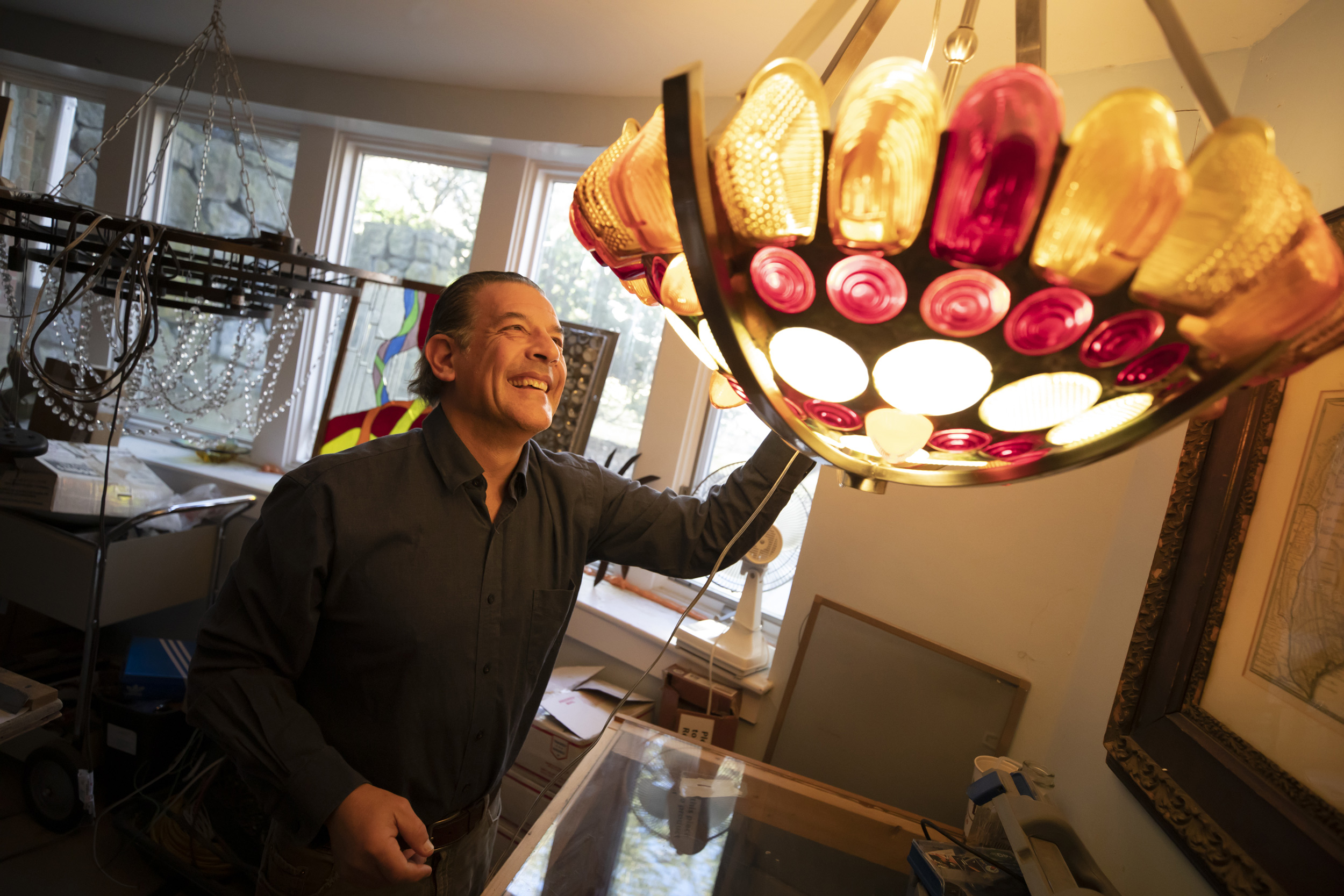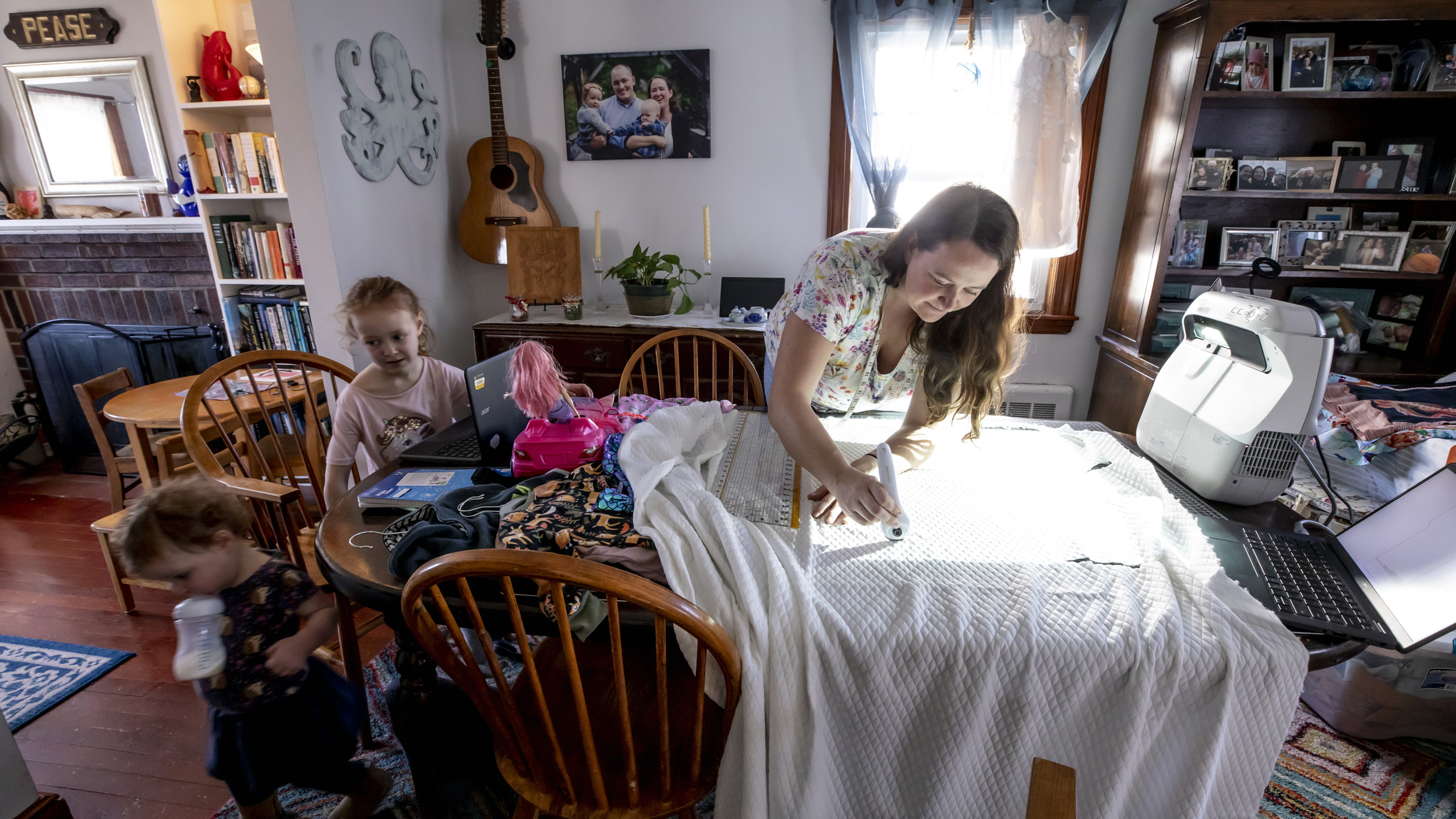
Kate Pease, assistant director of leasing and space planning, sews at home using a projector to draw her pattern. Daughters Ella and Coraline are on left.
Photos by Rose Lincoln/Harvard Staff Photographer
A gallery of their own
260 submissions go on exhibit for the second Harvard Staff art show
“As long as I’m creating, it satisfies something inside of me,” says Harvard staffer Byron Jelden, a glass and metal artist. Jelden, along with Kat Nakaji, Clare Putnam, Dave Habeeb, and Kate Pease, is featured in the Harvard Staff Art Show 2022.
The four exhibits represent 260 submissions of staff from Cambridge, Allston, the Arnold Arboretum, Harvard Hellenic Center in Greece, and Villa I Tatti in Italy. The in-person shows are being held on campus at Memorial Church (through today), the Ed Portal (through today), Smith Campus Center (through Tuesday), and Countway Library at HMS (through April 29). Details are here: https://staffartshow.harvard.edu/.
A jazzy video on the website created by participating artist Vincent Liu, an Ed School student and security officer at Securitas, also showcases the varied art, which includes sculptures, textiles, music, and film.
The show, now in the second year, is led by a steering committee, volunteers, and coordinators at the in-person galleries. Says steering committee member and contributing artist Roba Khorshid, “It’s been wonderful to see the Staff Art Show grow from just a Smith Center show in 2020 to a University-wide virtual show in 2021 and currently expand to include four physical exhibits across campus in addition to the virtual show. This would not have been possible without sponsorship by Common Spaces and a dedicated team of staff who volunteered their time to make this project what it is today. We continue to be amazed by the variety and quality of art submitted by staff and delighted by the feedback we receive from the Harvard community.”
Kate Pease
Fabric Artist

Her mother was a sewer who gave her inspiration, but Kate Pease didn’t start sewing creatively until her eldest daughter was born seven years ago. Pease’s workspace is her family dining room. On a recent visit, a Barbie doll and a school laptop were at one end of the table while her fabric was laid out on the rest. Pease uses a projector to trace her patterns on fabric that she often finds online, sold by small, family-owned designers. She has made bathing suits, onesies, and Halloween costumes for her children and a Hawaiian-style shirt for her husband. She recently repurposed her friend’s wedding gown into a Christening gown for the friend’s daughter, a project Pease found (understandably) a little scary as she began to cut into the gown. In the dining room, as Pease motors along on her sewing machine, her husband proudly boasts about her talent while her 1-year-old and 7-year-old sort sewing clips.
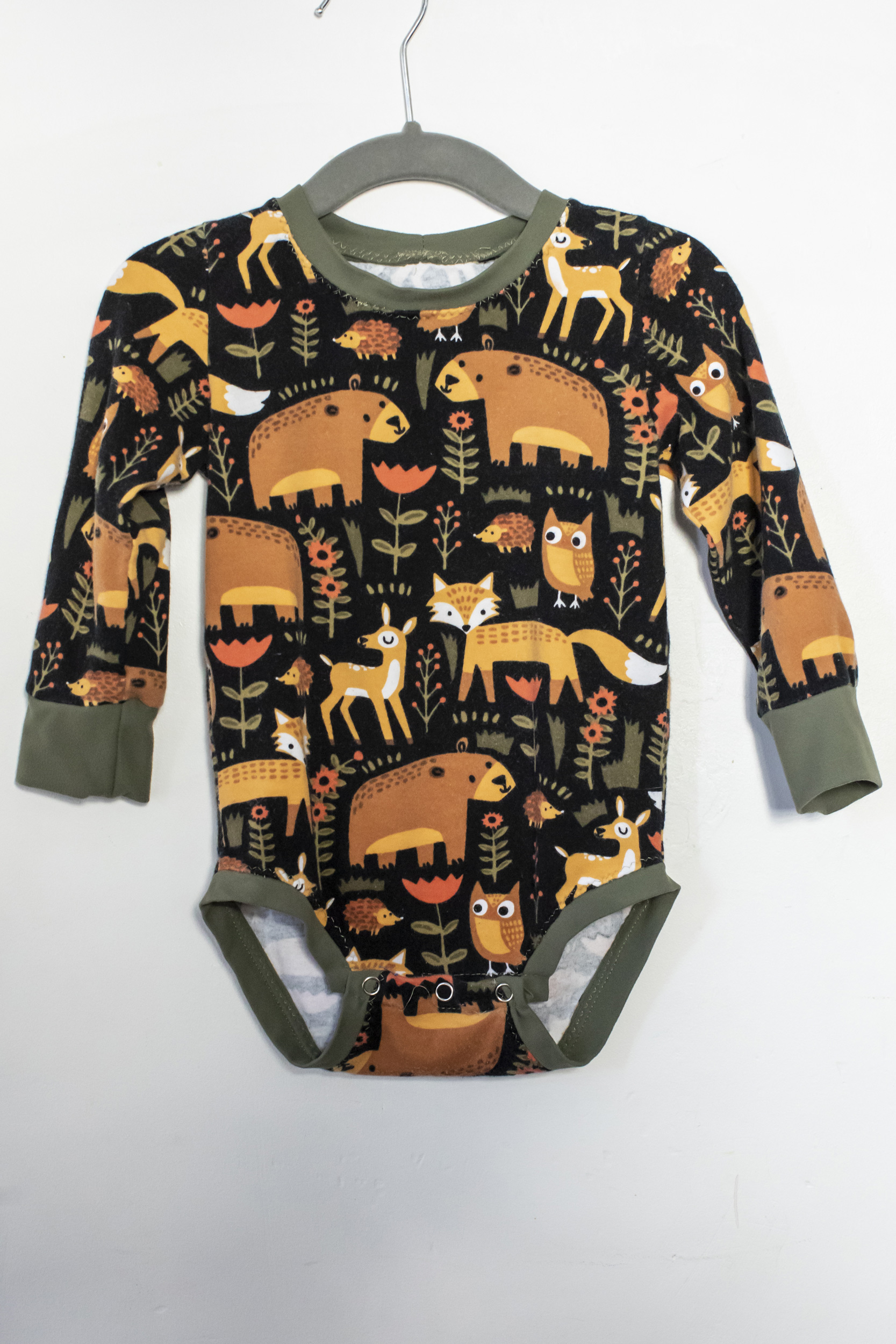
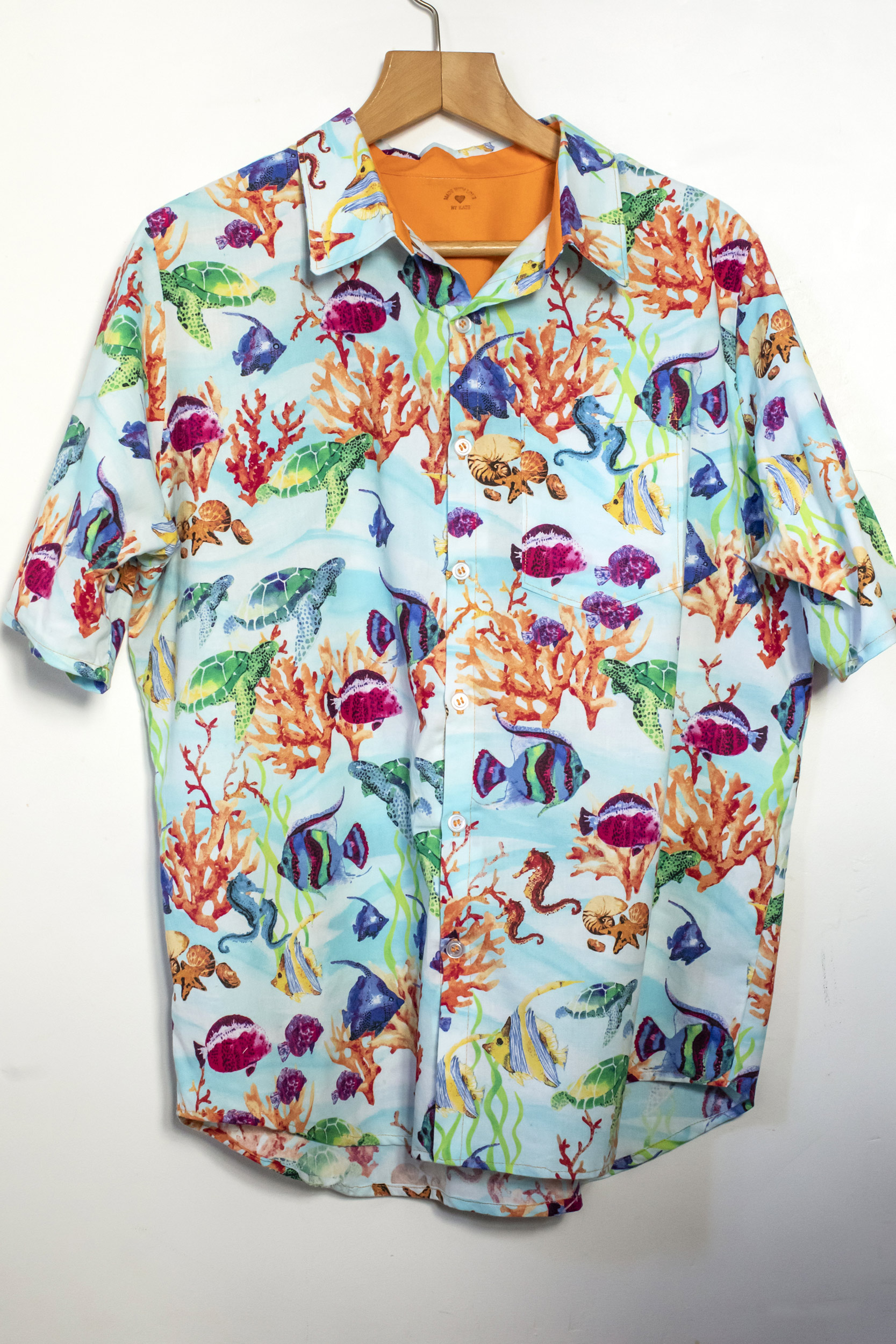
Pease made the onesie for her son and the Hawaiian shirt for her husband.
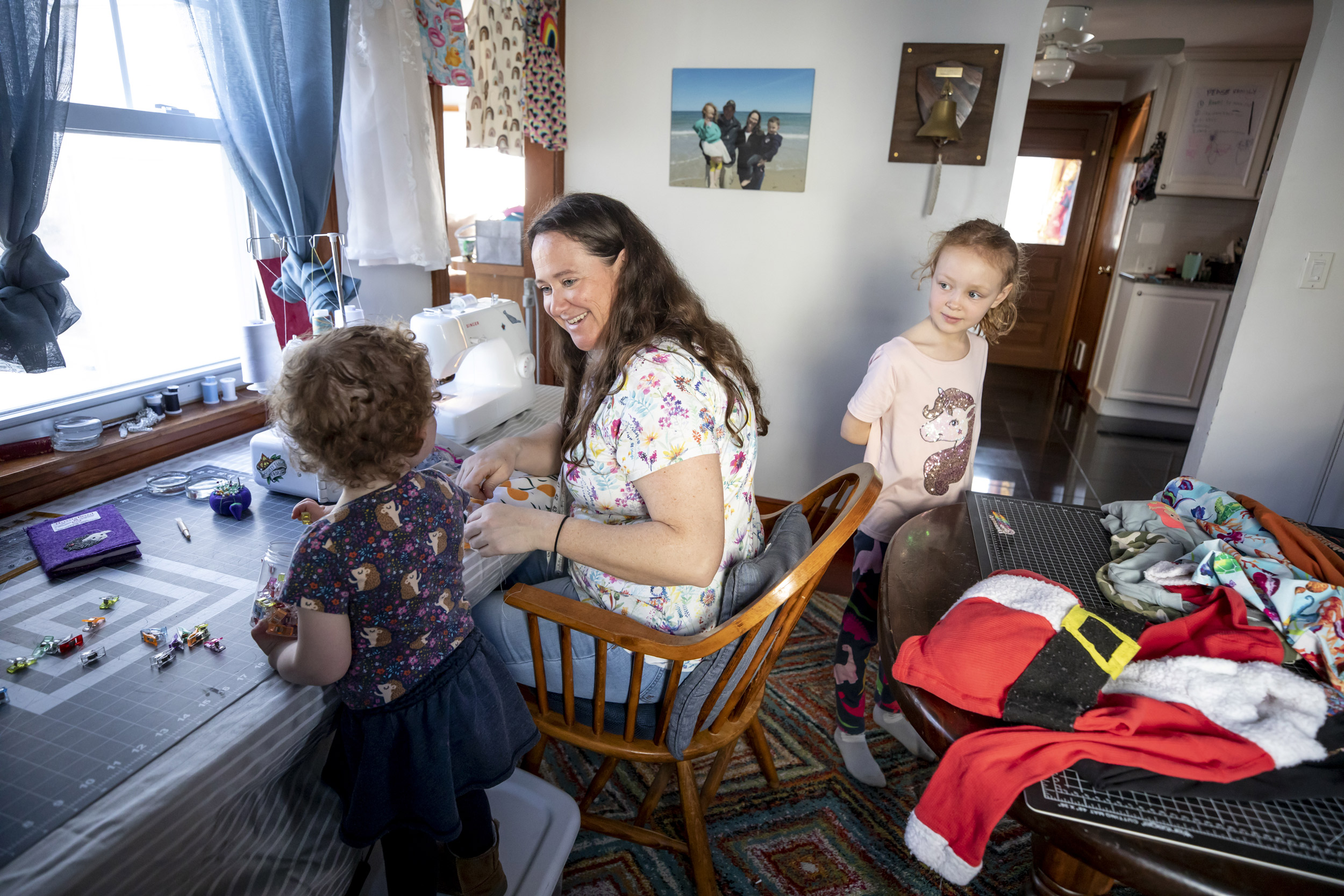
Dave Habeeb
Videographer/Photographer
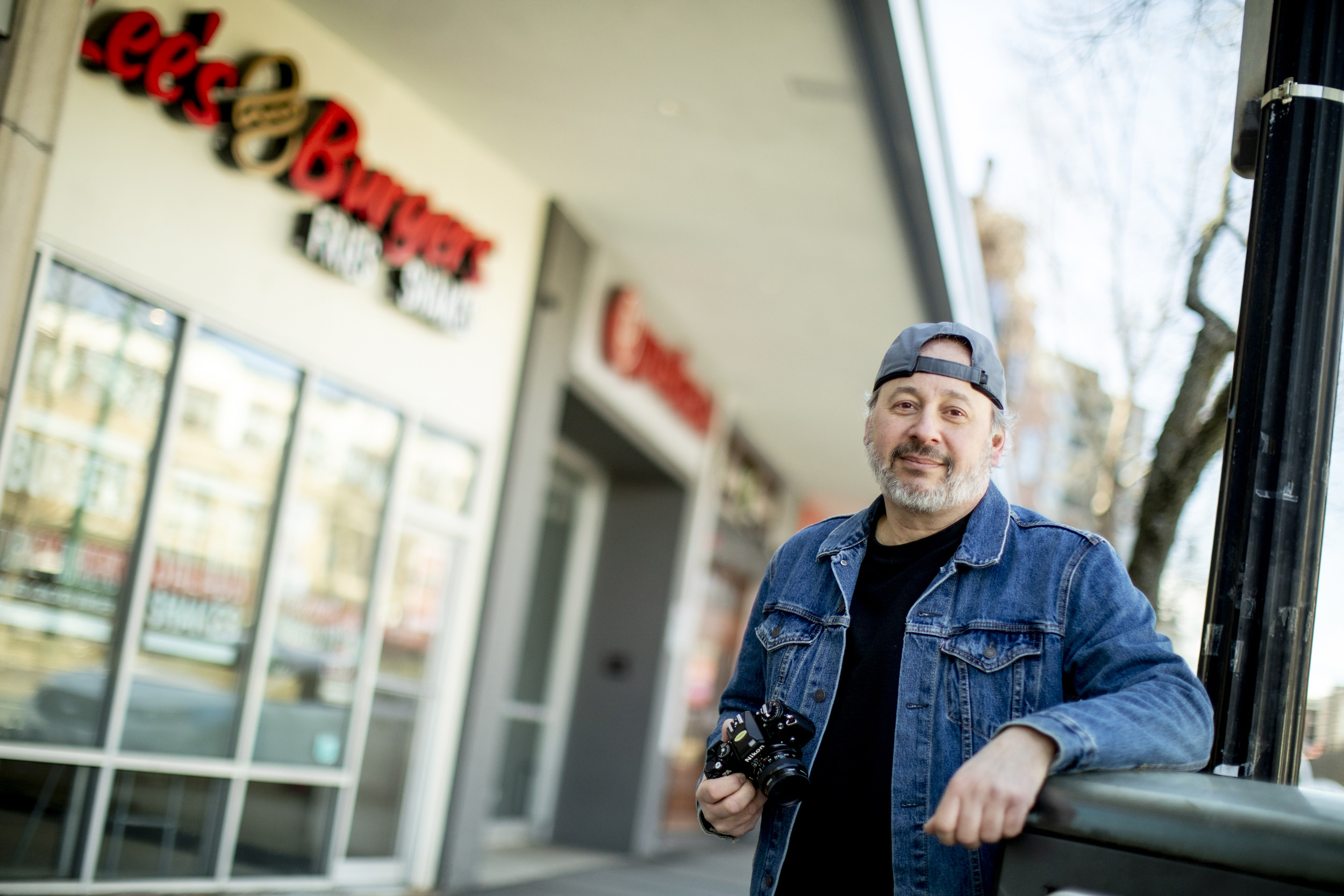
For Dave Habeeb, creative director in the Technology Products Group, creative passion comes from his love of film and cinema. “I consider myself a filmmaker first and a photographer second. I am very inspired by music, all kinds, live performances, photography, and storytelling,” he said. Habeeb has two photographs in the Staff Art Show. “Working with people, getting to meet new people to collaborate on something creative or trying to understand someone else’s story, when it comes to making a documentary, is probably what moves me more than the medium itself,” he said.
In 2016 Habeeb started a feature-length music documentary project that focuses mainly on women and some members of the LGBT community in the Boston music scene. He has shot more than 140 hours of raw footage and hopes to complete the project later this year. He was also one of the founding members of the original multimedia production group at HBS in 1993.
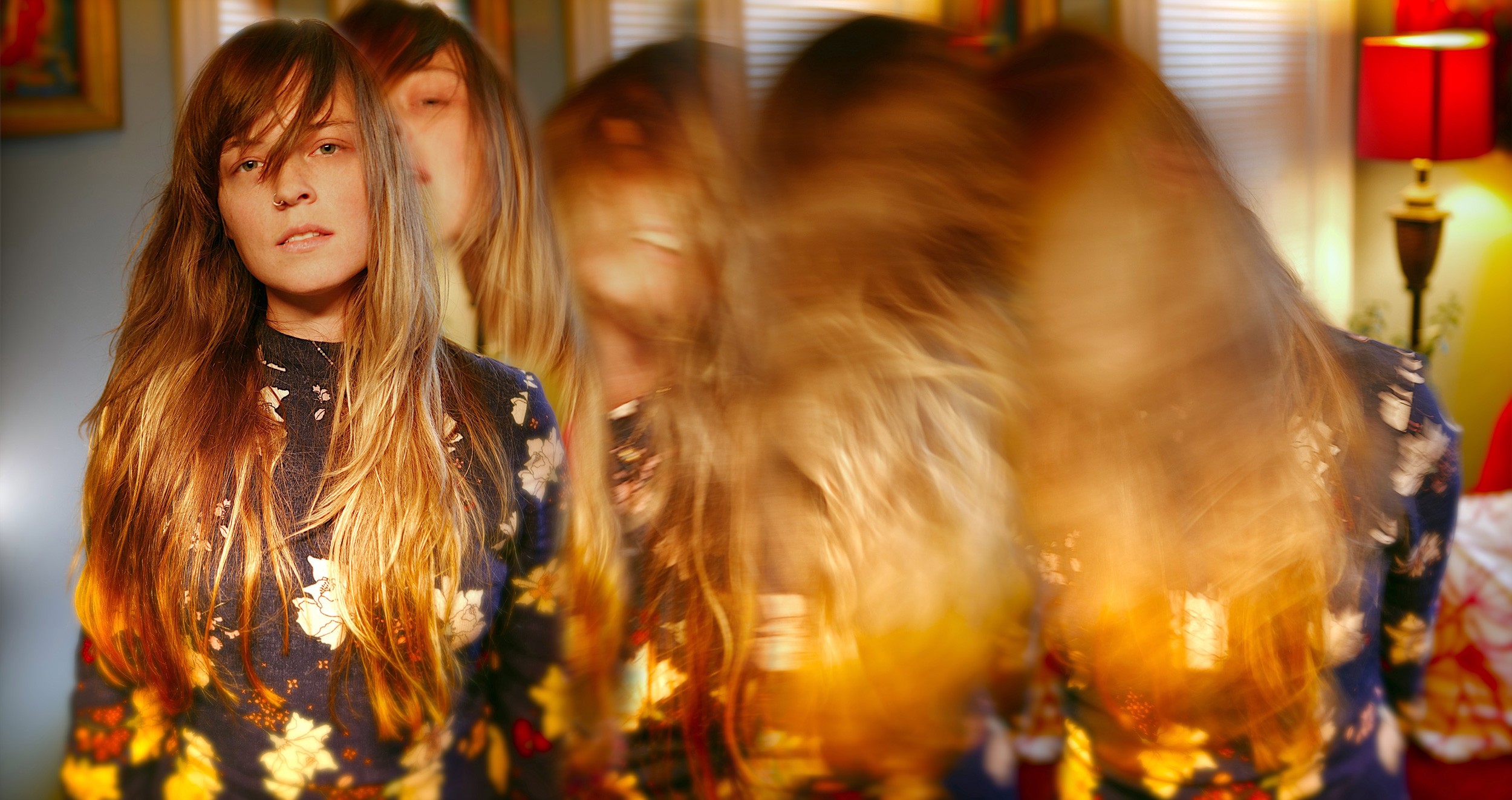
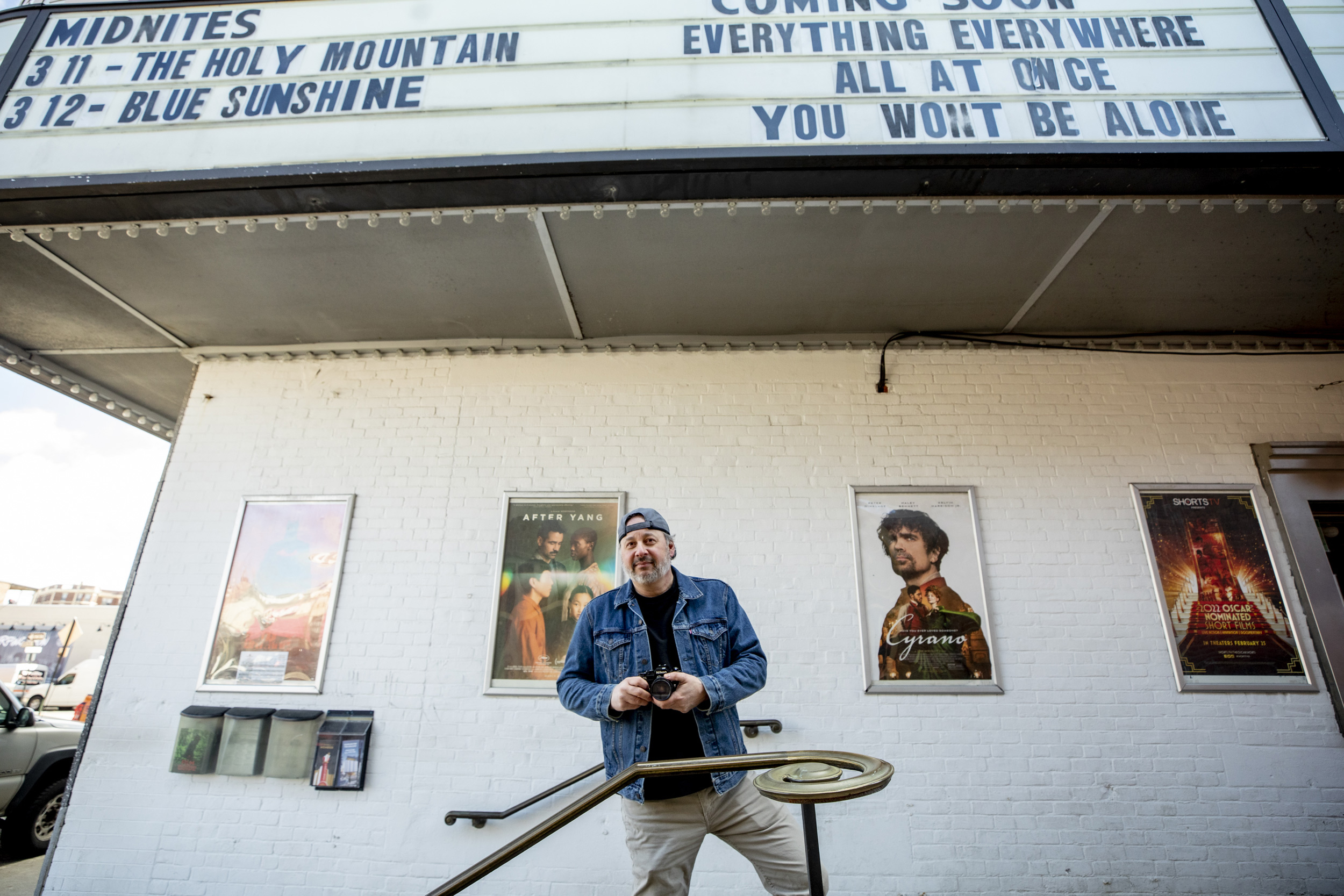
Kat Nakaji
Digital Artist/Fabric Artist

“I hope that my work allows people to sit in their emotions for a moment while I share mine and maybe we can find connection there,” says Kat Nakaji, a technical and production specialist at the ArtLab at Harvard. The two pieces Nakaji has in the Staff Art Show were made using the software Procreate on the iPad. “I took foundation elements and layers I painted and then abstracted them by altering the focus, distorting their structure, or shifting the opacity,” Nakaji said. In addition to digital art, Nakaji does crafts, such as crocheted animals and quilts. Nakaji is currently working on a temperature blanket where the color of each knitted row represents the weather that day. Before coming to the ArtLab, Nakaji worked as a carpenter for theater. Trained in watercolor and drawing, they started a new project painting migratory spring birds this spring.
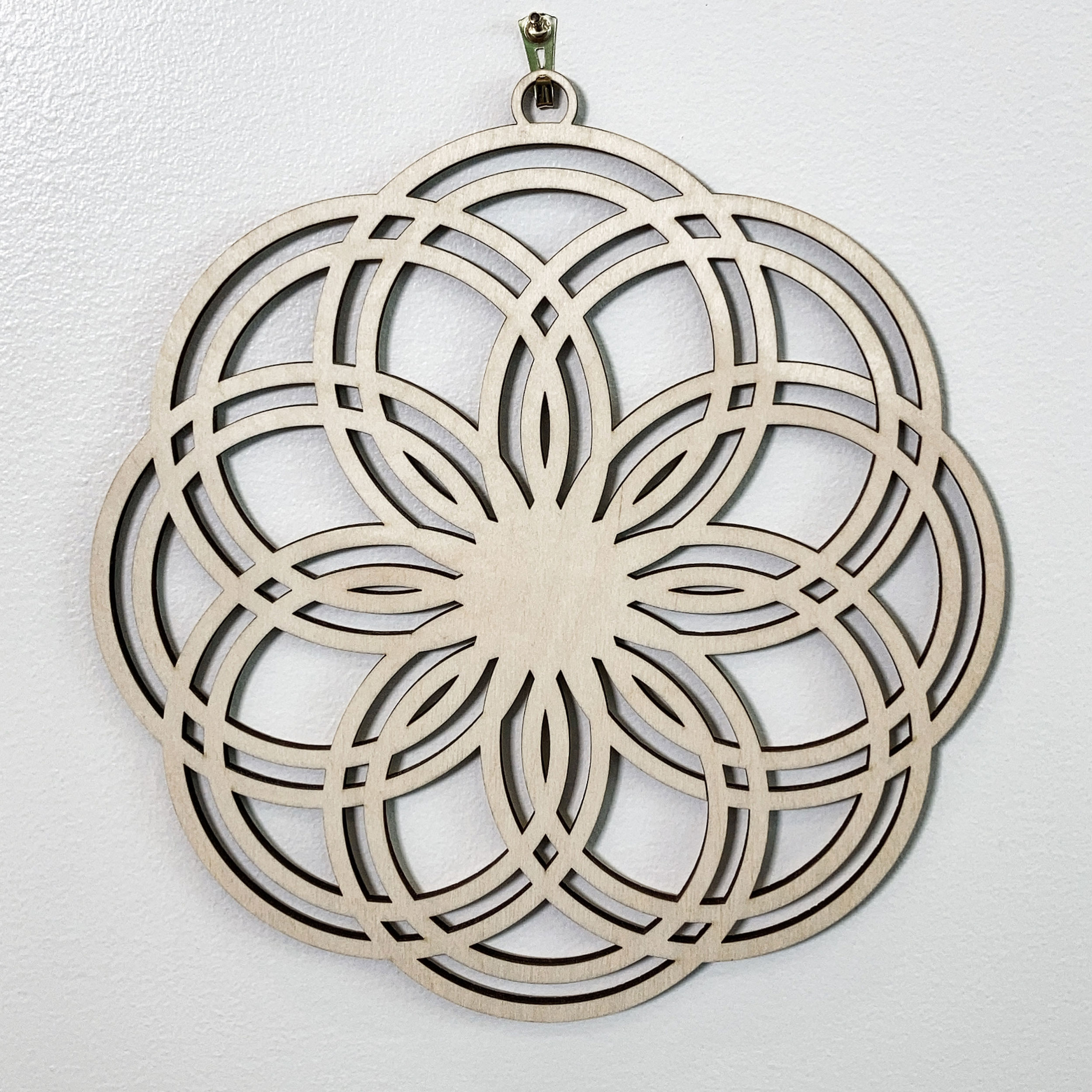
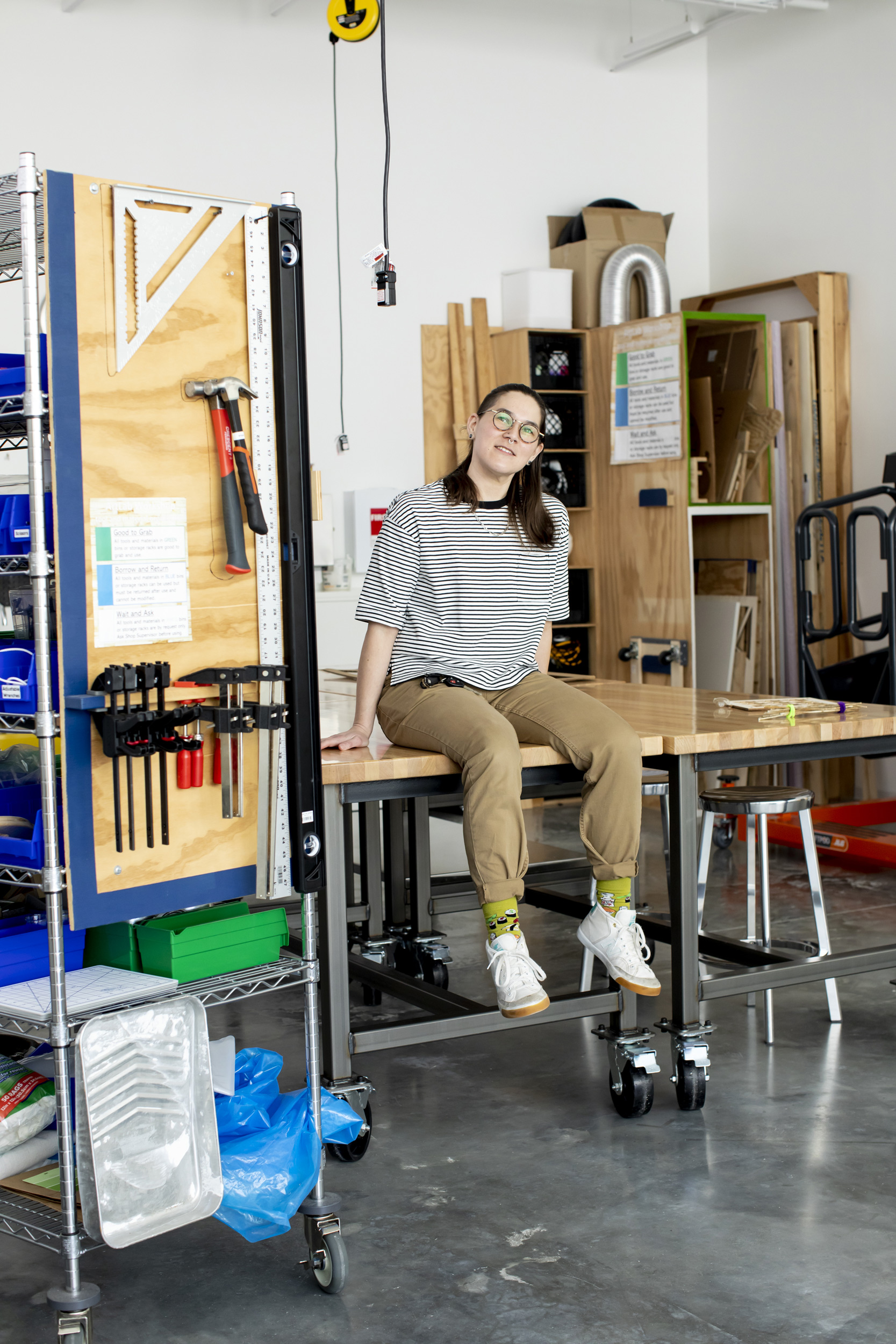
“Concentric Rings” by Kat Nakaji. Nakaji worked as a carpenter for theatre before joining the ArtLab.
Clare Putnam
Water Colorist
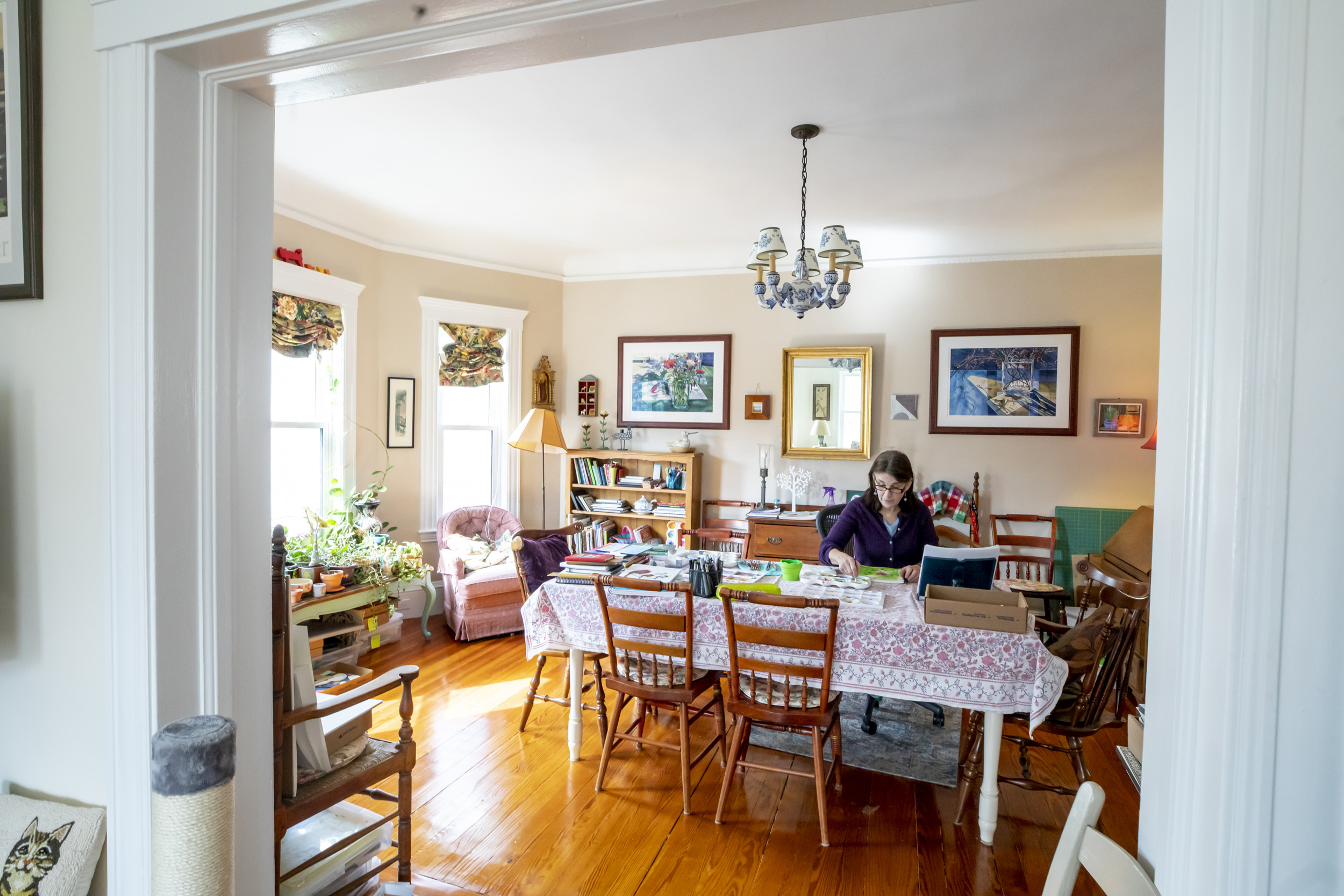
Clare Putnam started watercolor painting in 2015. “I was always attracted to the luminosity of watercolor,” she says. “There’s a fairly steep learning curve with watercolor because the wet paint is unpredictable, but that’s also what makes it challenging and fun! I always believed the myth that some people are artistically talented, but happily, I learned that what’s really important is embracing mistakes so they become an important step in the learning process, and having the passion and perseverance.” Putnam’s art is as colorful and sunny as the dining room in her home where she paints. Her passion comes from nature. She says sketching a place requires you to really see it and experience it more deeply. In Putnam’s weekly Zoom watercolor class, she has learned that “trying to capture a subject or scene in a literal, realistic way is not nearly as interesting as using my creative interpretation.”
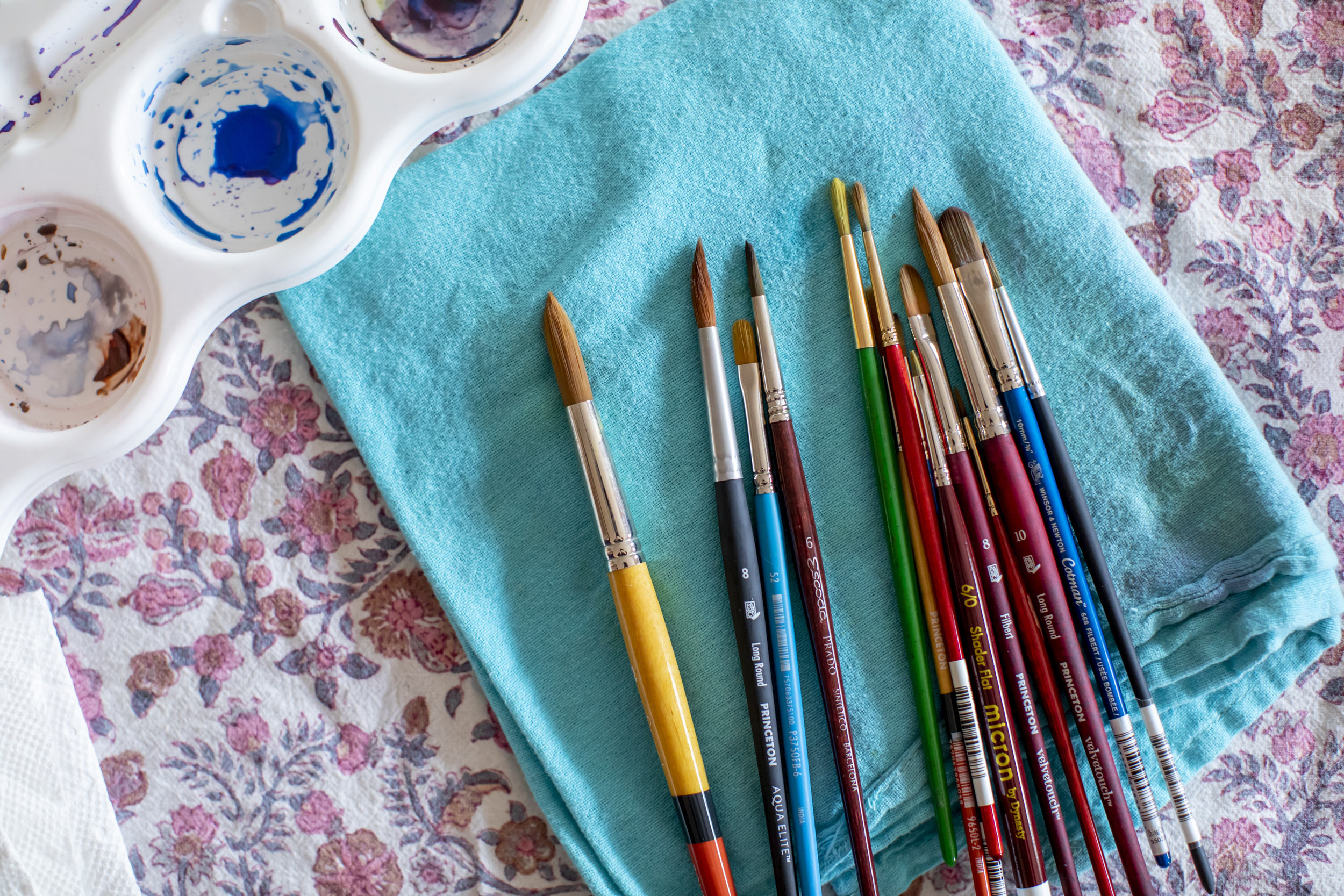
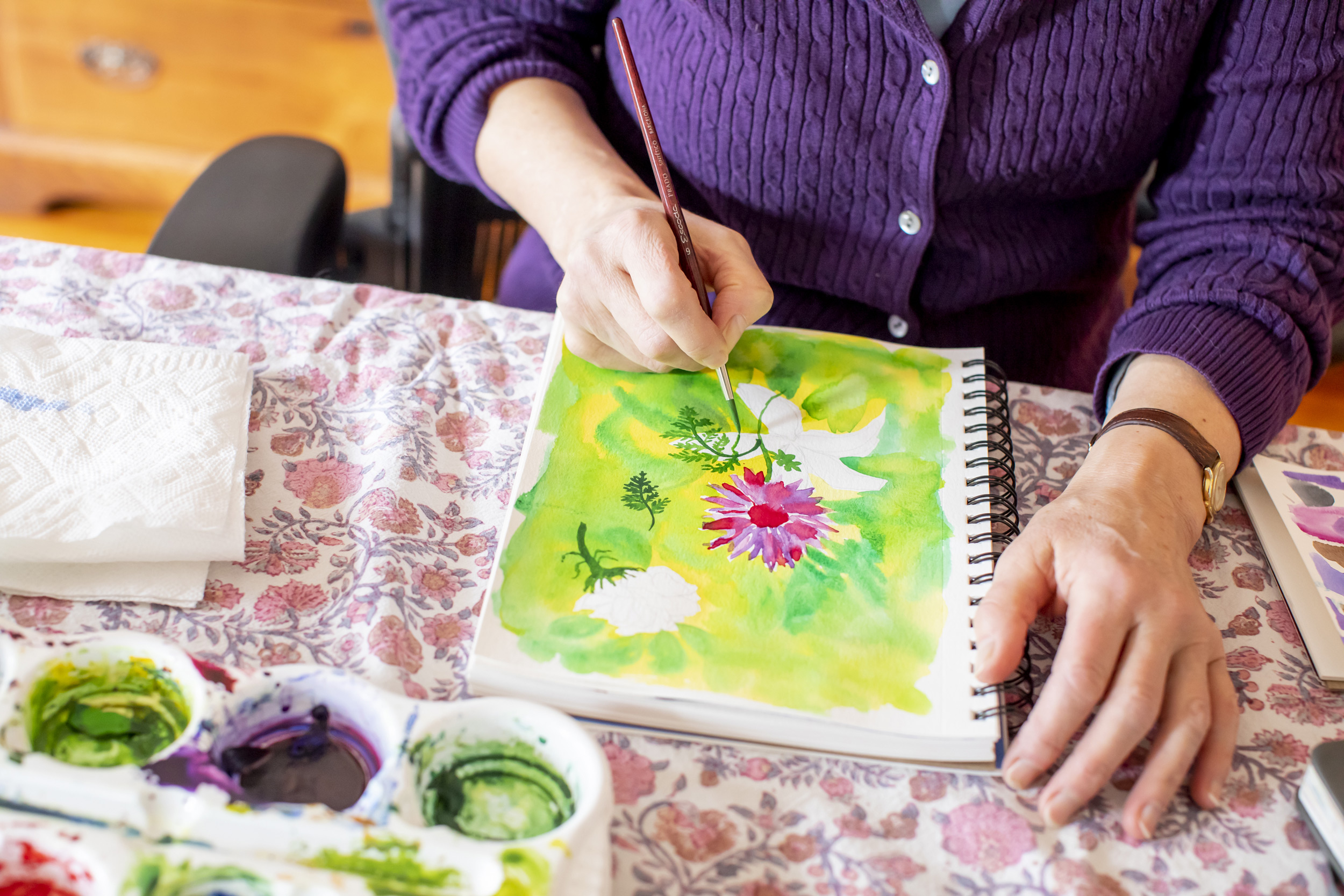
Putnam’s brushes and a painting she is working on.
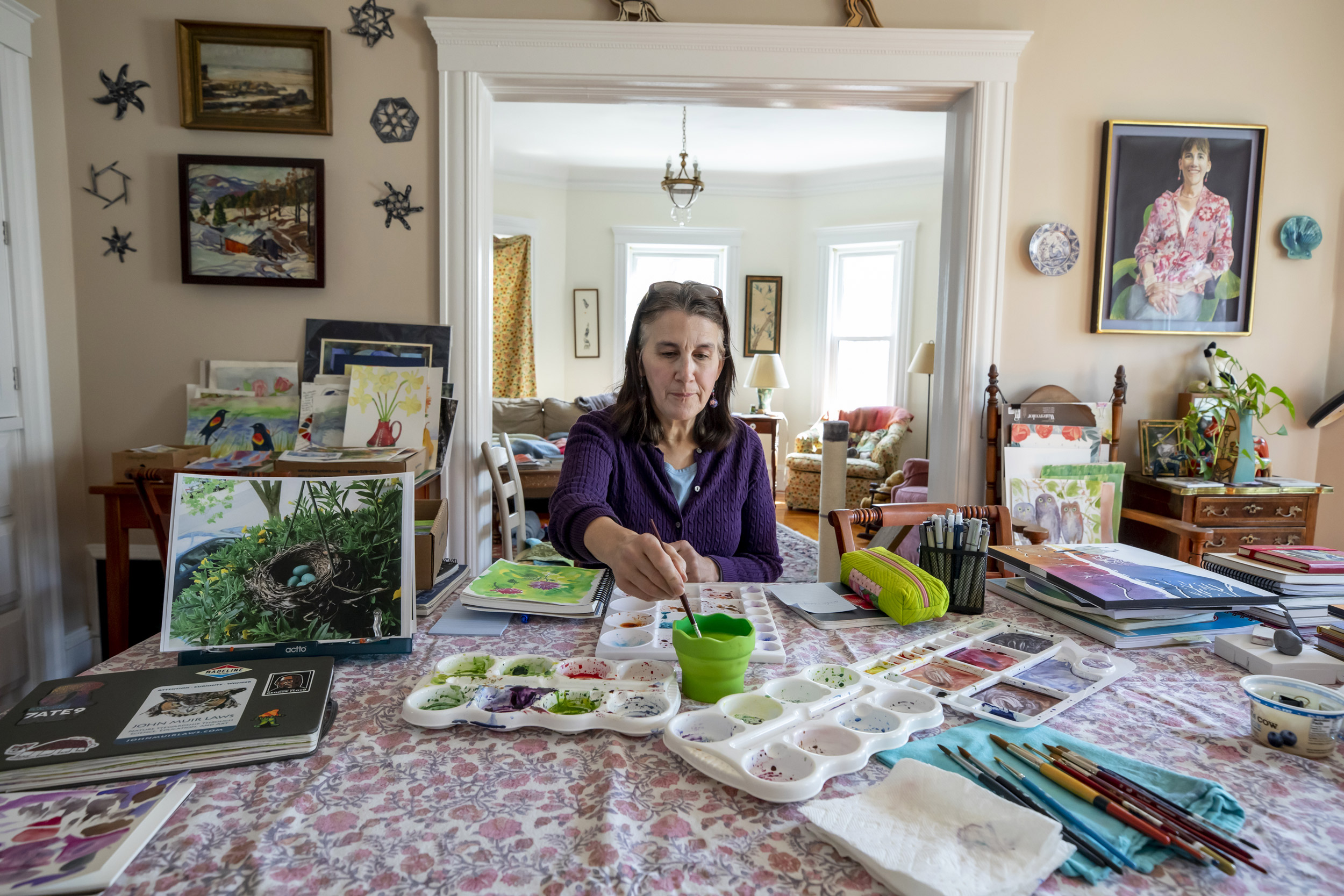
Byron Jelden
Mixed Media Artist
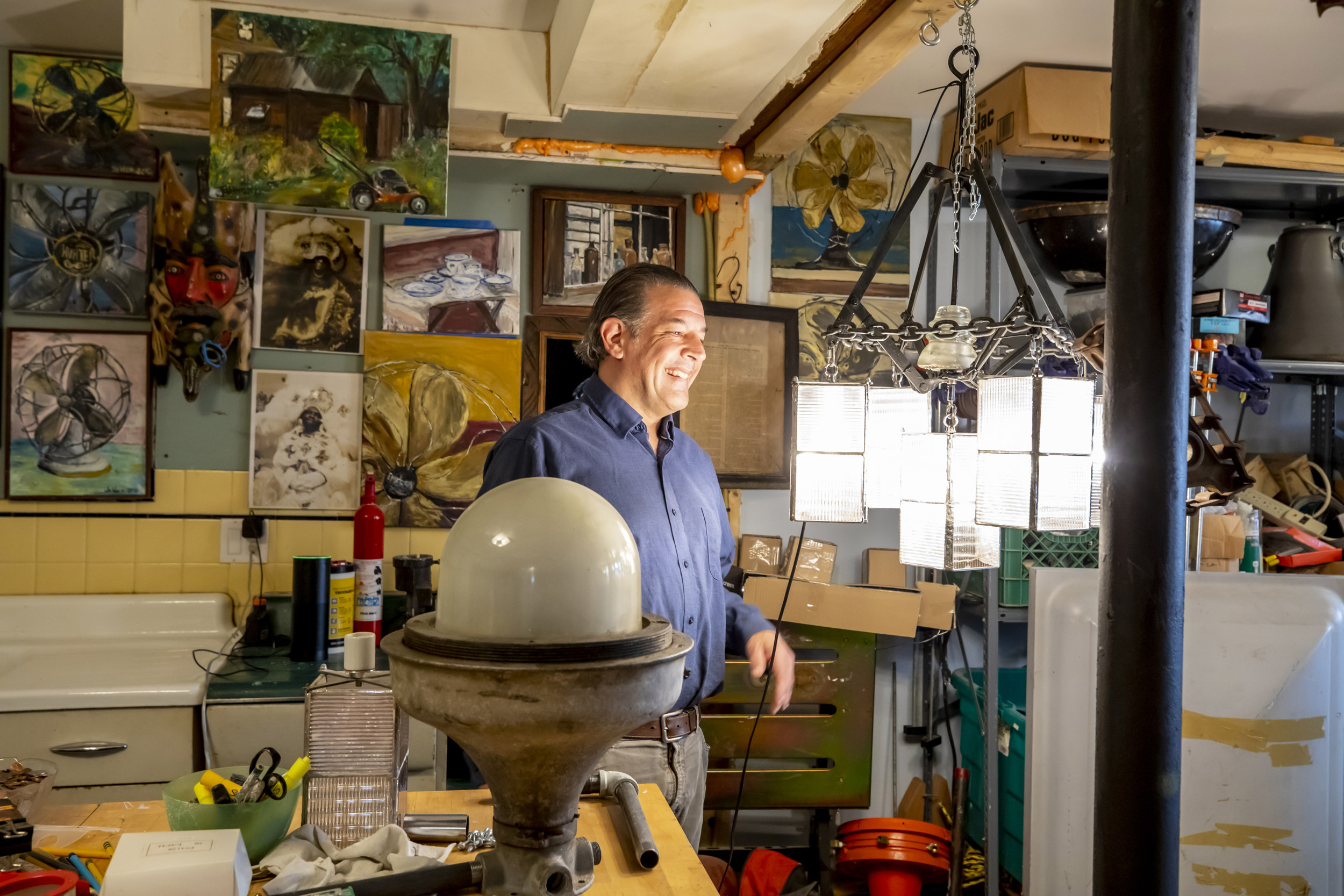
“I found this on trash day in Brookline,” says Byron Jelden, holding a circular metal object the size of a basketball. He plans to connect LED lights and attach the lamp to the post in front of his mid-century-style home. Strewn around Jelden’s basement workspace are old jar bottoms, some from the 1880s; a mercury doorknob he’ll turn into a finial for a lamp; safety glasses from the 1940s and “double bubbles,” square-shaped glass made famous by architect Frank Lloyd Wright. Jelden’s lifelong passion to create art started at his father’s side. He incorporates the found objects into chandeliers, mirrors, and panels. “The inspiration for my glass art comes from the play of light and its reflection and refraction through glass,” he said.
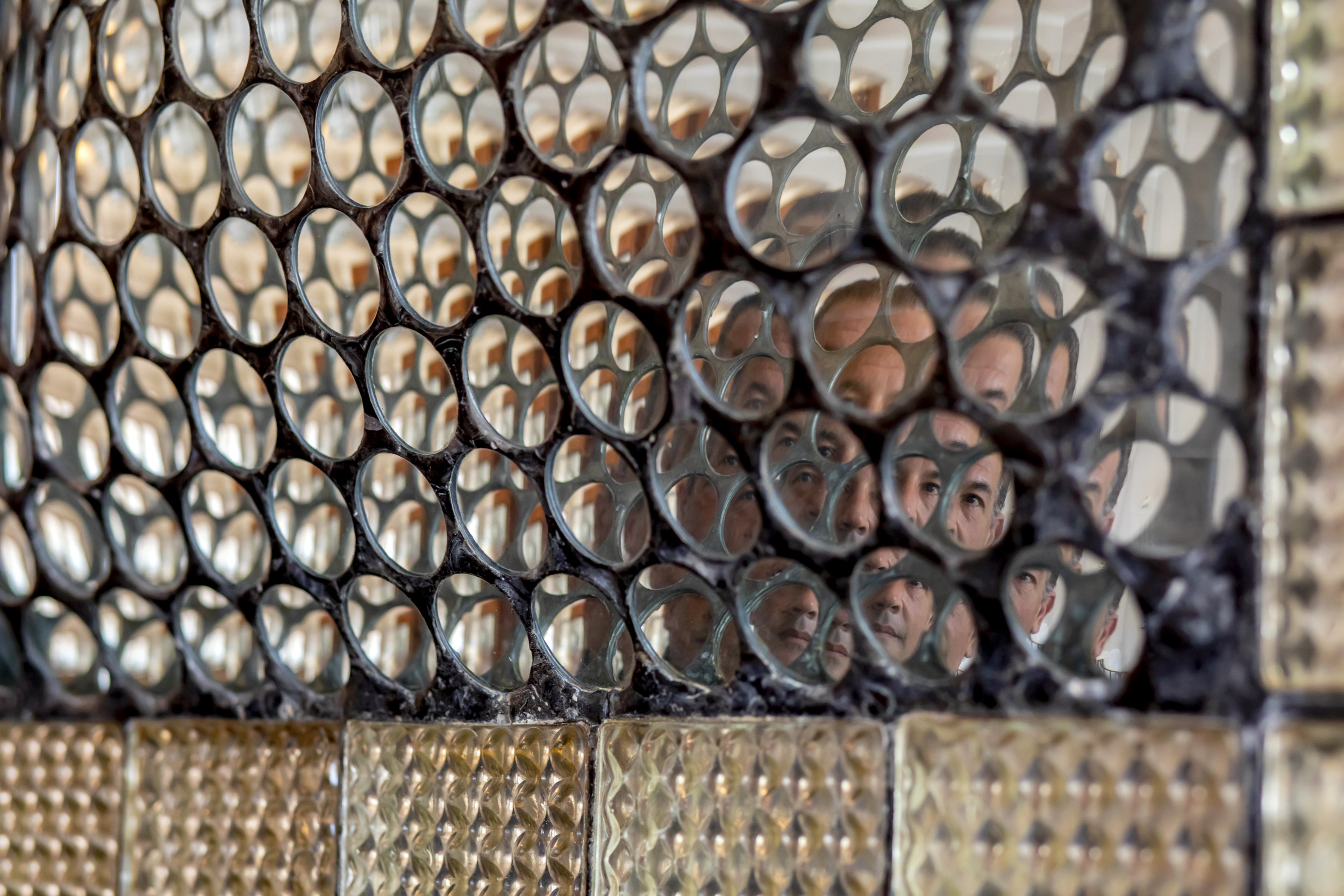
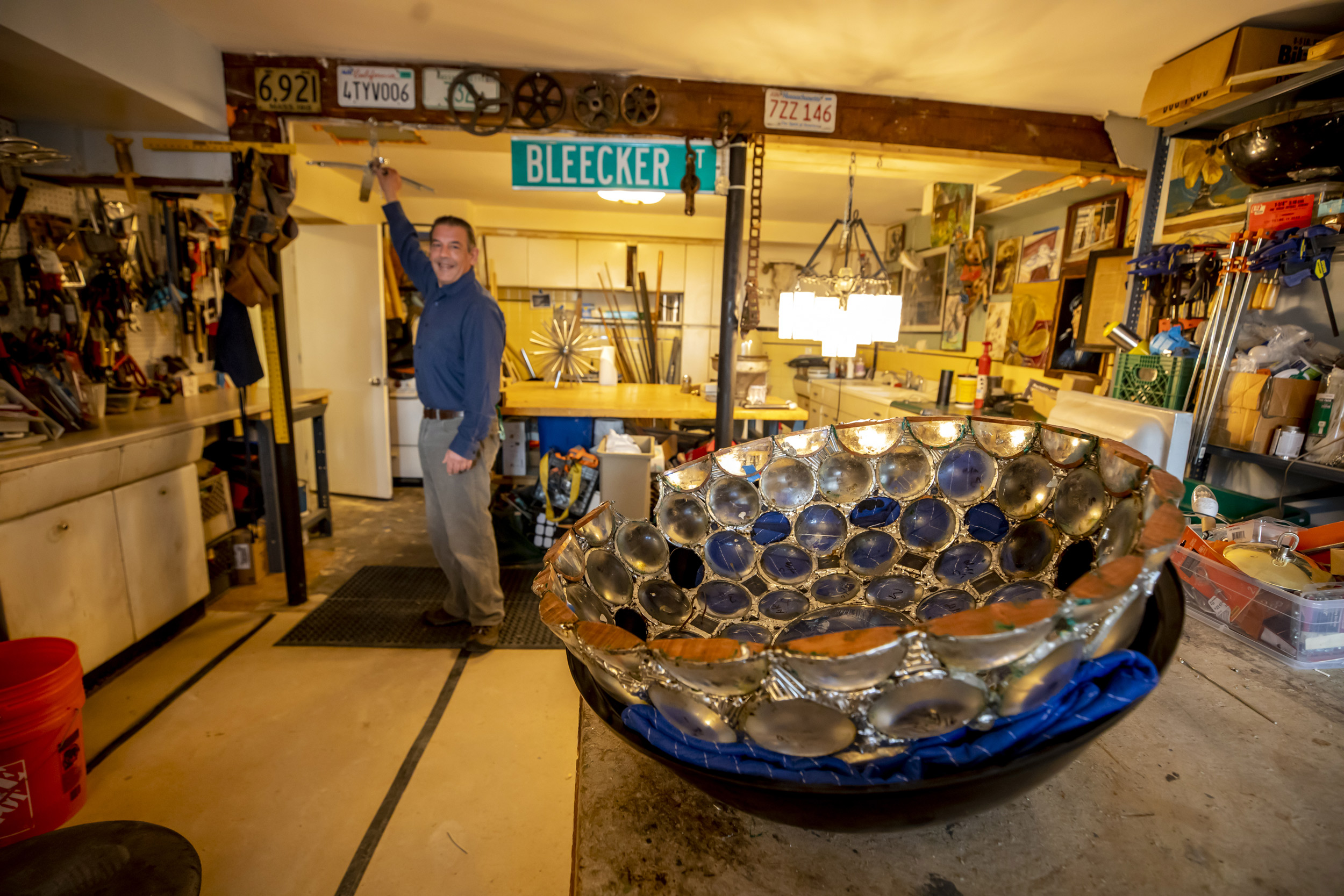
On left, Jelden is reflected in the Fly Eye Mirror he made. At right is a chandelier he made from projection TV lenses. The top of a Weber grill helps hold the piece steady while he works.
